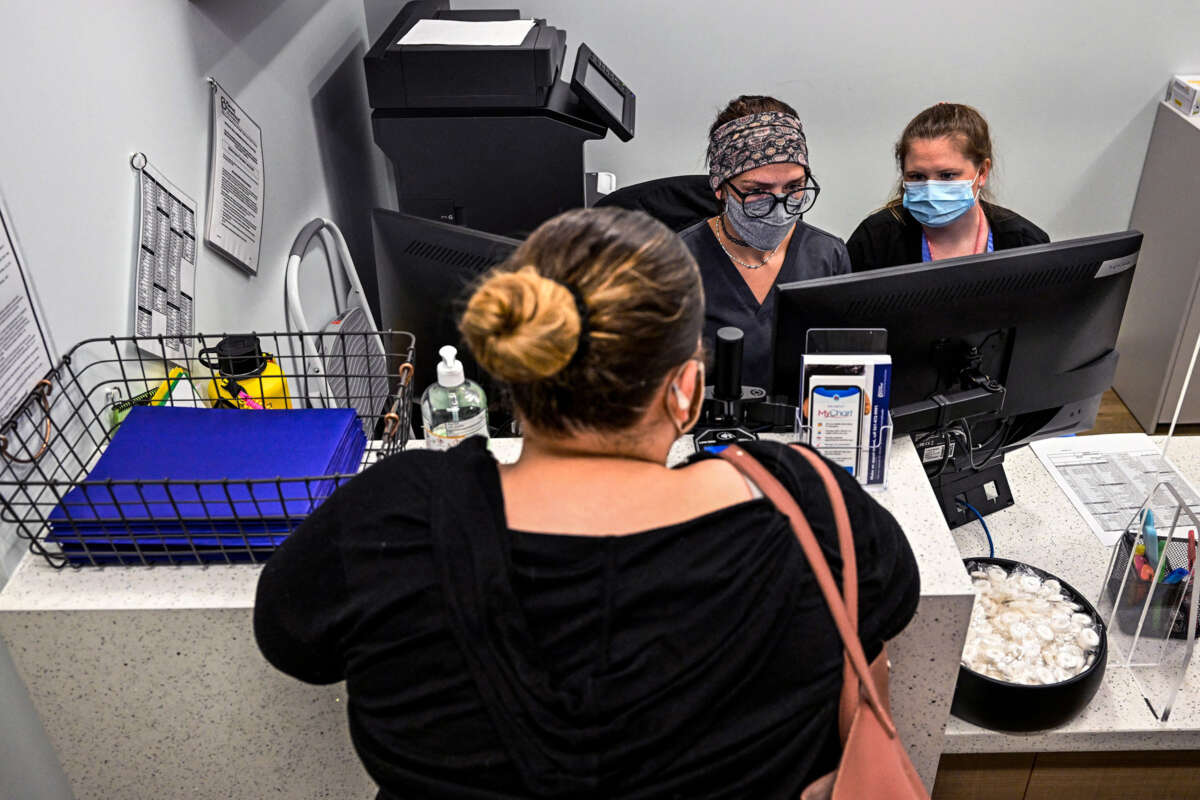Truthout is an indispensable resource for activists, movement leaders and workers everywhere. Please make this work possible with a quick donation.
Ignoring the pleas of nearly 300 doctors and other healthcare professionals, the Republican-controlled Lousiana state House on Tuesday was poised to vote on a bill that would reclassify two drugs used in medication abortions as “controlled dangerous substances” — and potentially limiting healthcare providers’ access to the frequently prescribed pills.
Senate Bill 276, originally proposed by state Sen. Thomas Pressly (R-38), centers on making it a crime in the state to use the pills to induce an abortion “on an unsuspecting pregnant mother without her knowledge or consent,” but after its passage in the Senate, Pressly added amendments to reclassify mifepristone and misoprostol.
Under the legislation, a person found with the pills without a prescription could be convicted of a felony, punishable with up to 10 years in prison.
Healthcare workers across Louisiana have called on Pressly to reconsider his amendments, which were co-written by the powerful pro-forced pregnancy group Louisiana Right to Life, and have warned they could dangerously delay or eliminate care for other health conditions for which the medications are prescribed.
“Mischaracterizing misoprostol, a drug routinely and safely used on labor units throughout the state, as a dangerous drug of abuse creates confusion and misinformation, and harms women seeking high quality maternal care,” wrote more than 280 health professionals in a recent letter to Landry.
The doctors emphasized that with one of the country’s most stringent abortion bans in place in Louisiana, healthcare workers have not recently been prescribing misoprostol for abortion care.
But the drug is used on a daily basis in the state’s hospitals and doctor’s offices, they said, to treat people who have suffered miscarriages, to induce labor, to prepare the cervix for intrauterine device (IUD) insertions, and to stop postpartum hemorrhaging — the third leading cause of maternal mortality.
“Misoprostol is such a literal life-saver,” New Orleans OB-GYN Dr. Nicole Freehill told Rolling Stone on Tuesday. “It’s a very inexpensive medication and very effective at preventing hemorrhage, for IUD insertions, for endometrial biopsies, to prep a patient’s cervix when they have a miscarriage. It’s utilized for so many things and on a very regular basis.”
State Rep. Mandie Landry (D-91) called the effort to reclassify mifepristone and misoprostol as dangerous drugs “harmful and malicious.”
“It is purely the product of Louisiana Right to Life and their politics,” Landry told Rolling Stone. “Doctors and common sense are all against it.”
The Democratic Legislative Campaign Committee (DLCC) said that the “first-in-the-nation” bill would further endanger pregnant people in a state where a near-total abortion ban has already “ravaged reproductive healthcare.”
A report released in March by Physicians for Human Rights showed that unnecessary cesarean sections have been performed more frequently under the ban in cases of preterm labor, in order “to preserve the appearance of not doing an abortion” and to protect physicians from potential prosecutions. The pregnant patients were not given a choice regarding whether to have the major abdominal surgery. Doctors in the state have also begun delaying routine prenatal care until the second trimester to avoid suspicion, in the case of a miscarriage, that they performed an abortion.
“Patients across the country should be put on notice — we know Republicans across the country will soon feel emboldened to follow in Louisiana’s footsteps and criminalize abortion medication too,” said Ahbi Rahman, communications director for the DLCC. “The DLCC will continue to sound the alarm on egregious attacks on women and healthcare providers — in Louisiana and across the nation. State legislatures are the battlegrounds determining the whole spectrum of reproductive care.”
On Monday, the Louisiana Society of Addiction Medicine submitted a letter to state House Speaker Phillip R. DeVillier (R-41), saying Pressly’s proposal “goes against the spirit of the drug scheduling system, which is designed to classify drugs based upon their danger, potential for misuse, and medical benefits.”
“Simply put, S.B. 276 represents a clear and worrying interference in the patient-clinician relationship that will negatively impact populations that we serve,” said the group.
Holding Trump accountable for his illegal war on Iran
The devastating American and Israeli attacks have killed hundreds of Iranians, and the death toll continues to rise.
As independent media, what we do next matters a lot. It’s up to us to report the truth, demand accountability, and reckon with the consequences of U.S. militarism at this cataclysmic historical moment.
Trump may be an authoritarian, but he is not entirely invulnerable, nor are the elected officials who have given him pass after pass. We cannot let him believe for a second longer that he can get away with something this wildly illegal or recklessly dangerous without accountability.
We ask for your support as we carry out our media resistance to unchecked militarism. Please make a tax-deductible one-time or monthly donation to Truthout.
